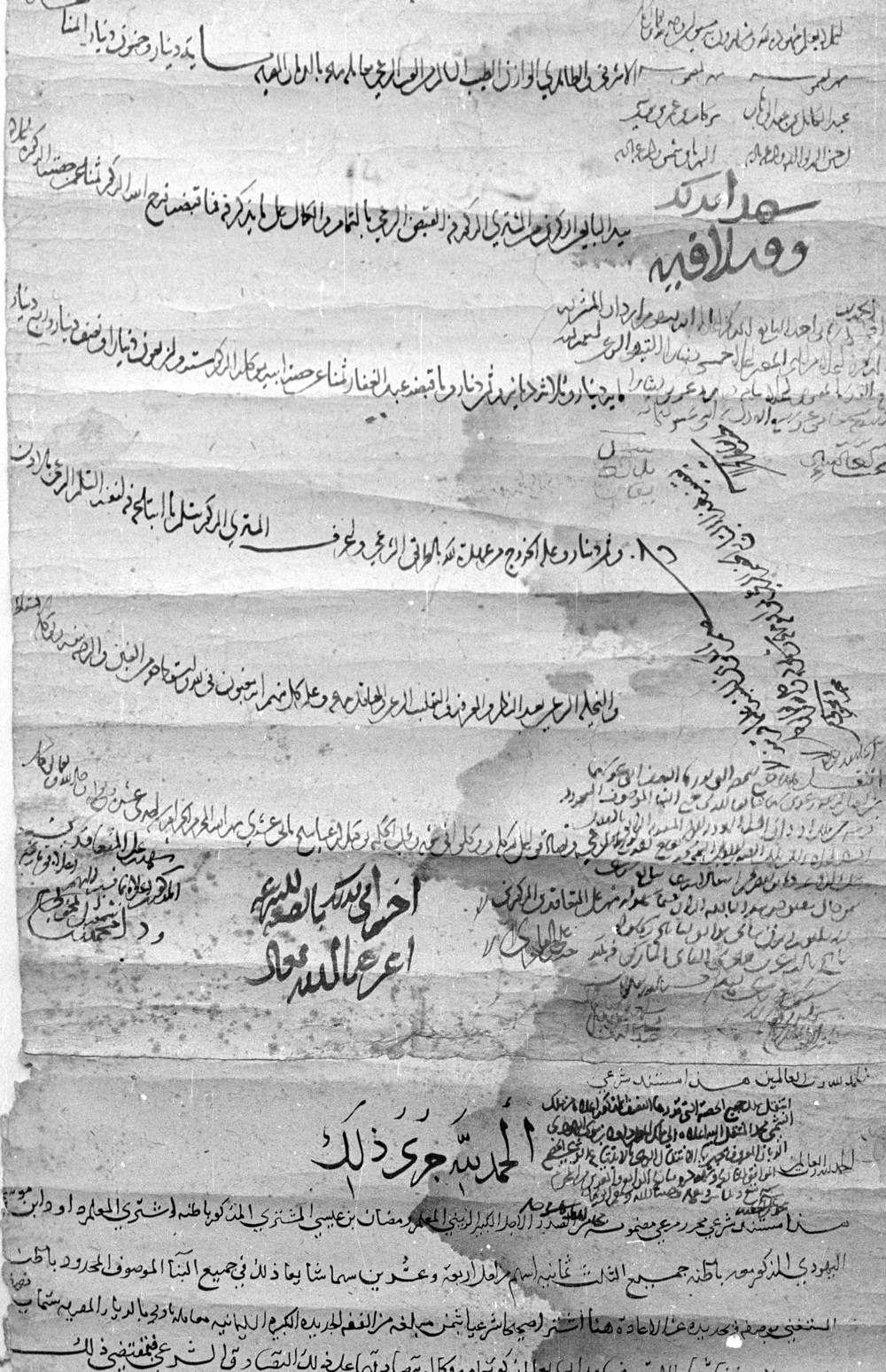Documentary Practice and Society in Late-Medieval and Early-Modern Cairo
A Corpus of Arabic Documents from the Qaraite Jewish Community
2019–2022
RFE03

This project investigates a corpus of Arabic documents connected to the Qaraite Jewish community in Cairo. Preserved in the archive of a synagogue in the city and ‘discovered’ by western scholars in the early twentieth century, these documents have attracted little attention from historians. The documents largely record the legal activities of members of the Qaraite community, and mostly date to the fifteenth and sixteenth centuries. This unique corpus offers a valuable opportunity to explore legal documentary practice in Cairo during a period of political transition in Egypt: from the final years of the Mamlūk Sultanate to the period of Ottoman rule.
This project relies on a ‘holistic’ methodology that involves scrutiny of the materiality and internal design of documents in addition to their content and social context, thus emphasising the importance of understanding written artefacts in their entirety. It endeavours to situate the production, use, and preservation of these documents against their appropriate social, legal, and political backdrops, in order to understand the role that these documents played within the society that generated them. It also foregrounds a corpus related to a marginal community, thus underlining the importance of recognising the full diversity of written artefacts that human societies have produced and relied upon. Ultimately, it highlights the historical significance of this under-utilised corpus and placing a specific analytical focus on the multiple conceptual, social, practical, and material processes that constitute documentary practice.
People
Project lead: Daisy Livingston